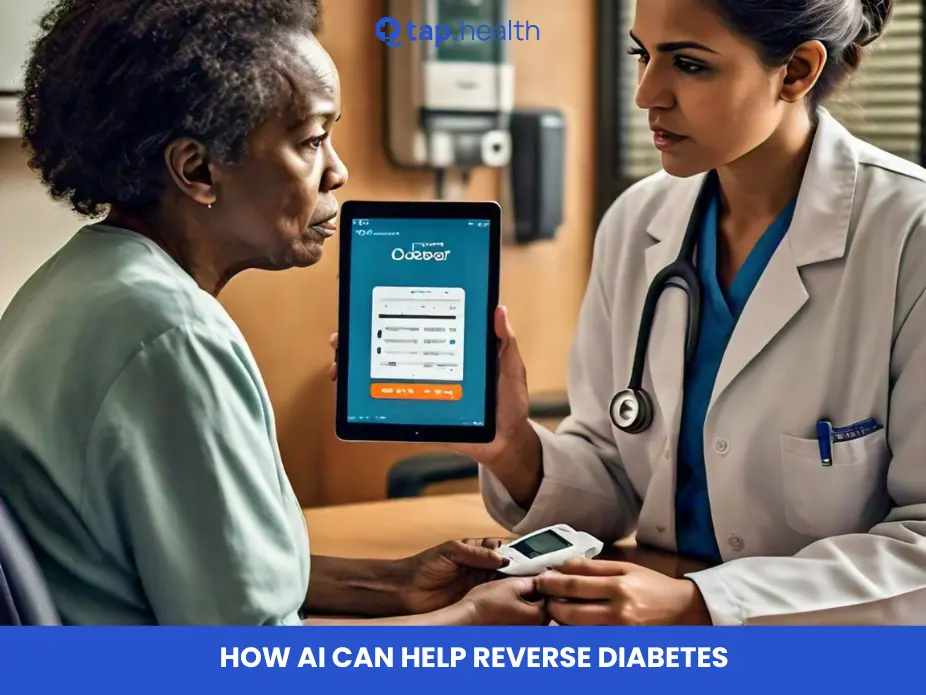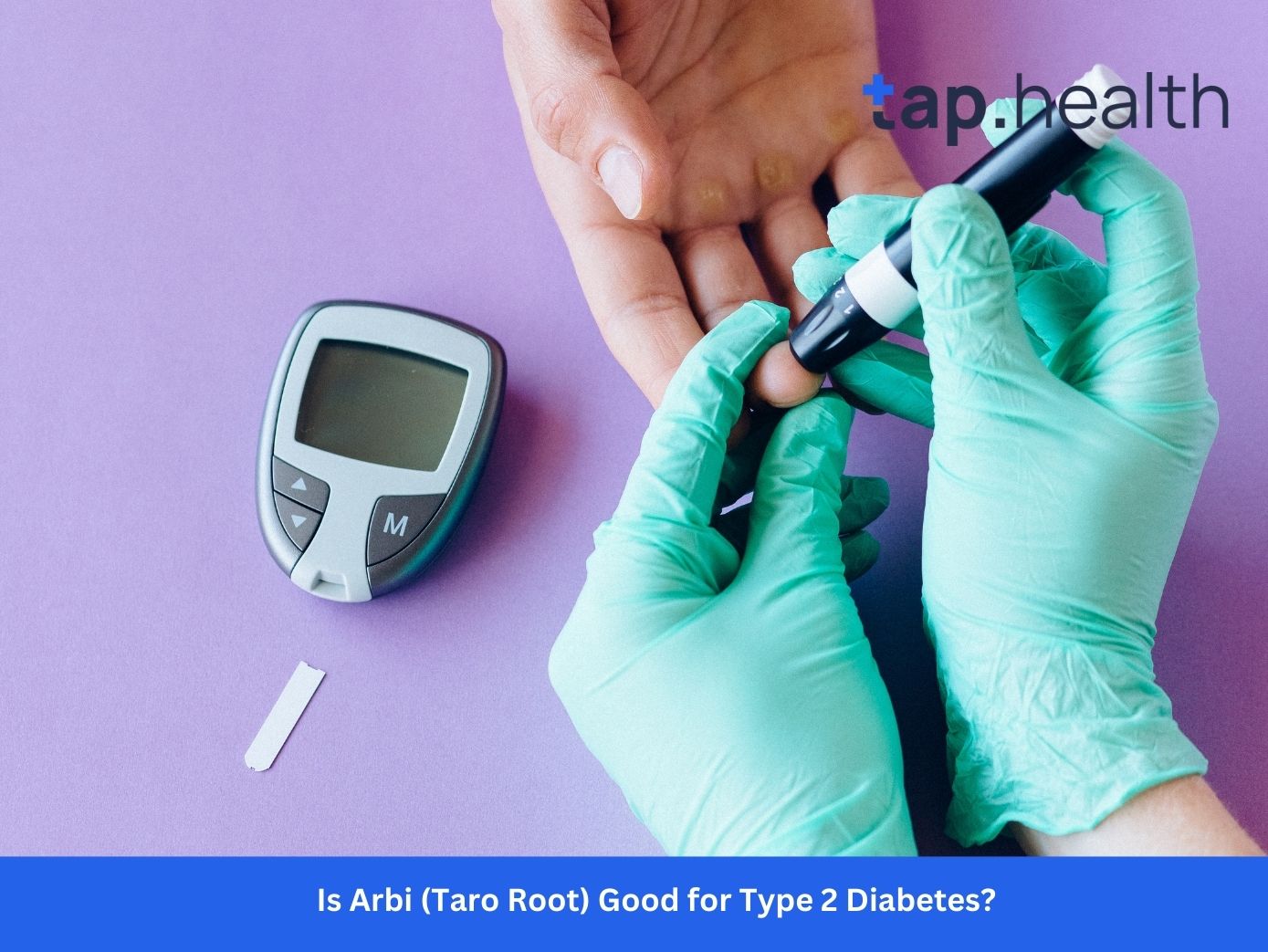Diabetes is a global health crisis, affecting over 422 million people worldwide, with numbers continually rising. The disease is marked by elevated blood glucose levels, which can lead to severe complications such as heart disease, kidney failure, and nerve damage if not managed properly. The traditional approach to diabetes management includes a combination of medication, diet, and exercise. However, these methods often fall short in reversing the condition, especially for individuals with Type 2 diabetes. This is where artificial intelligence (AI) comes into play, offering innovative solutions that go beyond conventional methods. AI can provide personalized, data-driven strategies that help manage and potentially reverse diabetes, empowering patients with the tools they need to take control of their health.
What is mean AI in Diabetes
Artificial Intelligence (AI) involves the creation of systems that can perform tasks typically requiring human intelligence. In diabetes care, AI encompasses various applications aimed at improving patient outcomes through advanced data processing and predictive capabilities.
How AI Works in Diabetes Management
Artificial Intelligence (AI) is reshaping diabetes management by leveraging sophisticated algorithms and data analysis to enhance patient care and outcomes. Here’s a detailed look at how AI works in the realm of diabetes.
Data Collection and Integration
AI’s role in diabetes management begins with data collection and integration. This involves gathering information from various sources, including wearable devices like continuous glucose monitors (CGMs) and fitness trackers, electronic health records (EHRs), and patient-reported data. These data sources provide a comprehensive view of a patient’s health, allowing AI systems to integrate and analyze diverse types of information, such as blood glucose levels, physical activity, and insulin usage.
Predictive Analytics
Predictive analytics is a crucial application of AI in diabetes management. Machine learning models analyze historical glucose data to forecast future blood glucose levels, considering factors like meal intake, exercise, and medication. This predictive capability helps in anticipating high or low blood sugar events, enabling timely interventions. AI also assesses the risk of diabetes complications by evaluating various factors, such as blood sugar control and overall health, using advanced predictive models.
Personalized Treatment and Recommendations
AI significantly enhances personalized treatment plans by analyzing individual patient data, including genetic information, lifestyle, and medical history. It generates tailored treatment strategies that may include optimized insulin dosing and customized dietary and exercise recommendations based on how specific factors affect a patient’s blood glucose levels. This personalized approach ensures that treatment plans are closely aligned with each patient’s unique needs.
Continuous Glucose Monitoring (CGM) Enhancement
AI improves continuous glucose monitoring systems by providing real-time insights into glucose data. Advanced data analysis enables AI to offer actionable insights and alerts for managing blood sugar levels effectively. AI can also predict glucose trends, alerting patients to potential issues before they become severe. In closed-loop systems, AI-powered insulin pumps automatically adjust insulin delivery based on continuous glucose readings, mimicking the function of a healthy pancreas.
1.Patient Engagement and Support
AI enhances patient engagement through interactive tools and virtual health assistants. Mobile apps and digital platforms use AI to offer personalized education, reminders, and feedback, helping patients manage their diabetes more effectively. AI-powered virtual assistants provide 24/7 support, answering questions and offering guidance, which helps in improving patient adherence to treatment plans and overall diabetes management.
2.Early Detection and Prevention
Early detection and prevention are vital aspects of diabetes management where AI plays a significant role. AI analyzes data to detect early signs of diabetes or complications, allowing for timely intervention. By assessing risk factors and predicting potential health issues, AI recommends lifestyle changes and preventive measures. It also contributes to population health management by analyzing large datasets to identify trends and inform public health strategies.
3.Challenges and Considerations
Despite its benefits, AI in diabetes management faces several challenges. Data privacy and security are paramount concerns, as sensitive health information must be protected against unauthorized access. Additionally, the accuracy of AI algorithms requires continuous validation to ensure reliable predictions and recommendations. Accessibility and equity are also critical, as disparities in technology access can affect the effectiveness of AI-based tools.
4.Future Directions
Looking ahead, AI in diabetes management is poised for further advancements. Integration with emerging technologies such as wearables and the Internet of Things (IoT) will likely enhance precision and personalization. Future developments will focus on refining machine learning models for better predictive accuracy and creating more patient-centric solutions that empower individuals to manage their diabetes effectively.
How AI Can Help You Reverse Diabetes
AI has the potential to significantly impact diabetes management and treatment in several ways. Here’s how it can help reverse or better manage diabetes:
1. Personalized Treatment Plans: Tailoring Care with AI
One of the most significant benefits of AI in healthcare is its ability to create personalized treatment plans. In diabetes management, this means moving away from a one-size-fits-all approach to one that considers the unique characteristics of each patient.
How AI Personalizes Treatment
AI algorithms analyze a multitude of data points, including a patient’s medical history, genetic information, lifestyle habits, and real-time health metrics. This comprehensive analysis allows AI to identify patterns and correlations that might not be apparent to healthcare providers. For instance, AI can predict how a patient will respond to a specific medication based on their genetic makeup or how their blood sugar levels fluctuate in response to different foods.
The Impact of Personalized Treatment Plans
By tailoring treatment plans to the individual, AI can optimize the effectiveness of interventions. Patients may find that their blood sugar levels are more stable, that they require fewer medications, or that they experience fewer side effects. Over time, these personalized interventions can lead to improved insulin sensitivity and even the reversal of Type 2 diabetes. The ability of AI to continuously learn and adapt to new data ensures that treatment plans remain effective as the patient’s condition evolves.
2. Continuous Glucose Monitoring and Predictive Analytics: Staying Ahead of the Curve
Continuous glucose monitoring (CGM) has revolutionized diabetes management by providing real-time data on blood sugar levels. However, interpreting this data and predicting future trends can be challenging without advanced tools.
How AI Enhances Continuous Glucose Monitoring
AI algorithms can process CGM data in real-time, analyzing trends and patterns that might be difficult for patients or even healthcare providers to discern. For example, AI can predict when a patient’s blood sugar levels are likely to spike or drop based on their past readings, diet, and activity levels. This predictive capability allows patients to take preventive actions, such as adjusting their insulin dosage or eating a snack before their blood sugar drops too low.
The Benefits of Predictive Analytics
The predictive power of AI in CGM systems helps patients maintain more stable blood sugar levels, reducing the risk of complications associated with hyperglycemia (high blood sugar) and hypoglycemia (low blood sugar). Over time, maintaining stable blood sugar levels can lead to improved insulin sensitivity and the potential reversal of Type 2 diabetes. Moreover, the ability to predict blood sugar trends empowers patients with the knowledge they need to make informed decisions about their health.
3. AI-Driven Diet and Exercise Recommendations: Customizing Lifestyle Changes
Diet and exercise are critical components of diabetes management, but finding the right balance can be difficult. What works for one person may not work for another, and trial-and-error approaches can be frustrating and time-consuming.
AI-Powered Nutritional Guidance
AI can analyze how different foods affect an individual’s blood sugar levels and provide personalized dietary recommendations. For example, AI can identify which foods cause a patient’s blood sugar to spike and suggest alternatives that are more compatible with their metabolism. Additionally, AI can help patients plan balanced meals that meet their nutritional needs while keeping their blood sugar levels stable.
Optimizing Physical Activity with AI
Similarly, AI can optimize exercise routines by analyzing how different types and intensities of physical activity affect blood sugar levels. For instance, AI can recommend specific exercises that improve insulin sensitivity or suggest the best times of day for a patient to work out based on their glucose patterns. By tailoring exercise recommendations to the individual, AI can help patients maximize the benefits of physical activity in managing their diabetes.
The Long-Term Impact of AI-Driven Lifestyle Changes
By following AI-driven diet and exercise recommendations, patients can achieve better control over their blood sugar levels, lose weight, and improve their overall health. These lifestyle changes can significantly reduce the need for medication and, in some cases, lead to the reversal of Type 2 diabetes. The ability of AI to provide ongoing support and adjustments ensures that patients stay on track with their health goals.
4. Early Detection and Prevention: Catching Diabetes Before It Progresses
Early detection of diabetes or prediabetes is crucial for effective intervention. The earlier the condition is identified, the more successful lifestyle changes and treatment can be in reversing it.
AI in Early Diagnosis
AI excels at analyzing large datasets, such as electronic health records (EHRs), to identify patterns and risk factors associated with the early onset of diabetes. For example, AI can detect subtle changes in blood sugar levels, weight, or cholesterol that might indicate the development of prediabetes. By flagging these early warning signs, AI enables healthcare providers to intervene before the condition progresses to full-blown diabetes.
Preventive Strategies Powered by AI
Once an individual is identified as being at risk for diabetes, AI can recommend personalized preventive strategies. These might include specific dietary changes, exercise routines, or even stress management techniques. By addressing the root causes of diabetes early on, AI can help prevent the condition from developing or progressing, thereby reducing the overall burden of the disease.
The Role of AI in Long-Term Prevention
AI’s ability to monitor and analyze a wide range of health data means that it can provide continuous support for long-term prevention. As a patient’s health status changes, AI can adjust its recommendations to ensure that preventive measures remain effective. This dynamic approach to prevention can significantly reduce the incidence of diabetes and improve public health outcomes.
5. AI-Powered Insulin Delivery Systems: Revolutionizing Diabetes Management
For individuals with Type 1 diabetes or advanced Type 2 diabetes, insulin therapy is a cornerstone of treatment. However, determining the correct insulin dosage can be complex and requires constant monitoring.
The Evolution of Insulin Delivery
Traditional insulin therapy involves manual injections or the use of insulin pumps that deliver a steady rate of insulin throughout the day. However, these methods can be imprecise, leading to fluctuations in blood sugar levels.
AI in Insulin Pumps: The Artificial Pancreas
AI-powered insulin pumps, often referred to as “artificial pancreas” systems, represent a significant advancement in diabetes management. These systems continuously monitor blood glucose levels and use AI algorithms to automatically adjust insulin delivery in real-time. The AI learns from each patient’s glucose patterns and can predict when blood sugar levels will rise or fall, adjusting insulin delivery accordingly.
Benefits of AI-Driven Insulin Delivery
The precision of AI-powered insulin pumps reduces the risk of both hyperglycemia and hypoglycemia, leading to more stable blood sugar levels. Over time, this improved glucose control can enhance insulin sensitivity and contribute to the reversal of Type 2 diabetes. Additionally, the convenience of having an automated system reduces the burden on patients, allowing them to focus on other aspects of their health.
6. Enhancing Patient Engagement and Education: Empowering Individuals with Knowledge
Managing diabetes requires ongoing education and engagement. However, many patients struggle with adhering to treatment plans due to a lack of understanding or motivation.
AI-Powered Educational Tools
AI-driven platforms can provide personalized education and support to help patients better understand their condition and how to manage it. For example, AI can deliver educational content tailored to a patient’s specific needs, such as how to count carbohydrates or the importance of regular exercise. These platforms can also provide real-time feedback on blood sugar readings, helping patients learn how different factors affect their glucose levels.
Improving Adherence with AI
AI can also improve adherence to treatment plans by providing reminders and motivational support. For instance, AI-powered apps can remind patients to take their medication, check their blood sugar, or engage in physical activity. Additionally, AI-driven virtual health coaches can offer encouragement and tips for staying on track with lifestyle changes.
The Long-Term Impact of Enhanced Engagement
By improving patient engagement and education, AI can help individuals take a more active role in managing their diabetes. This empowerment can lead to better adherence to treatment plans, improved health outcomes, and, ultimately, the potential reversal of Type 2 diabetes.
7. Data-Driven Research and New Therapies: Accelerating the Future of Diabetes Care
AI is transforming the research landscape by enabling faster and more efficient discovery of new treatments and interventions for diabetes.
AI in Drug Discovery
AI algorithms can analyze vast amounts of data from clinical trials, genetic studies, and real-world evidence to identify new drug targets and predict the effectiveness of treatments. For example, AI can identify which molecules are most likely to improve insulin sensitivity or reduce inflammation in patients with diabetes. This data-driven approach accelerates the drug discovery process, leading to the development of new therapies that could potentially reverse diabetes.
AI and Personalized Medicine
AI is also driving the advancement of personalized medicine, where treatments are tailored to the individual’s genetic makeup and specific disease characteristics. For diabetes, this could mean developing therapies that target the underlying causes of the condition, such as insulin resistance or beta-cell dysfunction. By personalizing treatment, AI has the potential to improve outcomes and reverse the course of the disease.
The Future of Diabetes Research with AI
As AI continues to evolve, its role in diabetes research will likely expand, leading to the discovery of even more innovative therapies and interventions. The ability to analyze large datasets and identify patterns that were previously undetectable will drive the development of new treatments that could one day make diabetes a thing of the past.
Real-World Applications:
Several AI-powered tools are already making a difference:
- IBM’s Watson Health: Analyzes medical data to predict diabetes onset and provide personalized treatment plans.
- Medtronic’s (link unavailable) AI-powered continuous glucose monitoring system offers real-time insights for better management.
- Dexcom’s G6 CGM: AI-driven continuous glucose monitoring system predicts glucose levels, enabling proactive management.
Benefits of AI in Diabetes Management
Benefits-
1. Enhanced Accuracy in Glucose Monitoring
- Real-Time Data Analysis: AI improves continuous glucose monitors (CGMs) by providing precise, real-time insights into glucose levels, enabling better decision-making for insulin use and diet.
- Predictive Analytics: AI algorithms forecast glucose trends based on historical data, allowing proactive management and prevention of extreme blood sugar levels.
2. Personalized Treatment Plans
- Tailored Insulin Dosing: AI analyzes individual data such as glucose levels, meal intake, and physical activity to determine optimal insulin dosages, reducing complications and enhancing treatment effectiveness.
- Customized Recommendations: AI offers personalized advice on diet and exercise based on how these factors impact blood glucose levels, ensuring treatments are tailored to individual needs.
3. Improved Patient Engagement
- Interactive Tools: AI-powered mobile apps provide personalized feedback, reminders, and educational resources, helping patients stay engaged and adhere to their treatment plans.
- Virtual Health Assistants: AI-driven virtual assistants offer 24/7 support, answering questions and providing guidance to improve adherence to diabetes management strategies.
4. Early Detection and Prevention
- Risk Assessment: AI models assess risk factors and predict potential complications, allowing for early intervention and preventive measures to improve long-term health outcomes.
- Lifestyle Recommendations: AI provides tailored suggestions for lifestyle changes to prevent the onset of diabetes and related complications based on individual risk profiles.
5. Enhanced Treatment Adherence
- Behavioral Insights: AI tools offer strategies for behavior change and motivation, helping patients adhere to their treatment plans and make healthier lifestyle choices.
- Automated Reminders: AI systems send reminders for medication and glucose monitoring, ensuring consistency in treatment regimens.
6. Efficient Data Management
- Data Integration: AI integrates data from various sources such as wearables and electronic health records (EHRs) into a centralized platform, facilitating informed decision-making and streamlined care.
- Data Analysis: AI’s ability to analyze large volumes of data quickly provides comprehensive insights that would be challenging to obtain manually.
7. Advanced Research and Development
- Innovation in Treatments: AI accelerates the development of new treatments by analyzing data to identify potential breakthroughs and innovative approaches.
- Clinical Trials Optimization: AI enhances clinical trial design and execution by identifying suitable candidates, predicting outcomes, and analyzing trial data.
8. Cost Reduction
- Operational Efficiency: AI improves efficiency by automating routine tasks and streamlining administrative processes, potentially lowering healthcare costs.
- Reduced Complications: By enabling early detection and better management, AI helps prevent complications that could lead to expensive treatments and hospitalizations.
9. Enhanced Patient Safety
- Real-Time Alerts: AI systems provide alerts for critical situations such as high or low blood glucose levels, enabling prompt medical intervention and reducing the risk of severe outcomes.
- Error Reduction: AI minimizes human error in insulin dosing and glucose monitoring by offering accurate, data-driven recommendations and alerts.
10. Scalability and Accessibility
- Wide Reach: AI solutions can be scaled to provide high-quality care to a broader population, including underserved areas, improving access to diabetes management.
- Adaptability: AI systems can be tailored to meet the needs of diverse populations and individuals, overcoming geographical and socio-economic barriers.
Challenges and Considerations
a. Data Privacy:
- Security Concerns: The use of AI in diabetes management involves handling sensitive health data, which raises concerns about data privacy and security.
b. Accessibility:
- Technology Gaps: Access to AI-based tools can be limited by geographic, economic, and technological barriers, potentially affecting equity in diabetes care.
c. Algorithm Bias:
- Fairness: AI algorithms must be designed to avoid biases that could lead to unequal treatment outcomes among different populations.
d. Reliability:
- Accuracy of Predictions: The effectiveness of AI tools depends on the quality and accuracy of the data they use. Continuous validation and improvement are necessary to ensure reliable performance.
Conclusion: The Potential of AI in Reversing Diabetes
The integration of AI into diabetes care offers a new frontier in the fight against this chronic disease. From personalized treatment plans and continuous glucose monitoring to AI-powered insulin delivery systems and data-driven research, AI has the potential to revolutionize how we approach diabetes management. While the ultimate goal of reversing diabetes may still be on the horizon, the advancements driven by AI are bringing us closer to this reality every day.
As AI continues to evolve and become more integrated into healthcare, patients with diabetes can look forward to more effective, personalized, and accessible treatments. The promise of AI in reversing diabetes lies not only in its ability to manage the disease more effectively but also in its potential to empower patients with the knowledge and tools they need to take control of their health. By harnessing the power of AI, we can move closer to a future where diabetes is no longer a lifelong burden but a manageable and reversible condition.
The Future of AI in Diabetes Management
The future of AI in diabetes management holds great promise, with advancements expected to significantly enhance diagnosis, treatment, and ongoing care. AI will offer more precise predictions of glucose levels and potential complications through advanced predictive analytics, incorporating genetic and environmental data. Personalization will improve with real-time adjustments to insulin dosing and tailored dietary recommendations based on continuous monitoring. Integration with emerging technologies like wearable devices and smart implants will streamline treatment, while AI-driven drug development will lead to targeted therapies and personalized medication regimens. Improved patient-provider communication through AI-driven telemedicine and interactive health platforms will enhance care. AI will also expand preventive care with early warning systems and personalized lifestyle recommendations, improve accessibility in underserved areas, and prioritize data security and ethical considerations. Integration with genomic data will lead to more personalized treatments, and ongoing research and collaboration will drive continuous innovation in diabetes management.
FAQs About How AI Can Help You Reverse Diabetes:
1.Can AI completely reverse diabetes?
While AI can significantly improve diabetes management and potentially reverse Type 2 diabetes in some individuals, complete reversal depends on various factors, including the stage of the disease, the patient’s adherence to lifestyle changes, and overall health. AI is a powerful tool that can enhance personalized treatment, but it is not a guaranteed cure.
2.How does AI predict blood sugar levels?
AI uses algorithms to analyze a wide range of data, including past glucose readings, dietary habits, physical activity, and even sleep patterns. By identifying patterns in this data, AI can predict future blood sugar trends, helping patients and healthcare providers make informed decisions to prevent spikes or drops.
3.Is AI-based diabetes management accessible to everyone?
Accessibility to AI-based diabetes management tools can vary depending on factors like location, healthcare infrastructure, and socioeconomic status. While AI technology is becoming more widespread, there are still challenges in ensuring that these advanced tools are available to everyone, particularly in low-resource settings.
4.What are the risks of using AI in diabetes management?
The primary risks of using AI in diabetes management include potential data privacy concerns and the possibility of errors in predictions or recommendations. However, as AI technology continues to advance, these risks are being mitigated through improved algorithms, better data security measures, and ongoing research to enhance accuracy and reliability.
5.How does AI personalize diabetes treatment?
AI personalizes diabetes treatment by analyzing individual data, such as genetic information, medical history, lifestyle habits, and real-time glucose levels. This allows AI to create a customized treatment plan that is specifically tailored to the patient’s unique needs, leading to more effective management of the condition.
6.Can AI help in preventing diabetes?
Yes, AI can play a significant role in preventing diabetes by identifying individuals at high risk through analysis of various health indicators. AI can recommend personalized lifestyle changes, such as diet modifications and exercise plans, to reduce the risk of developing diabetes.
References
- American Diabetes Association. (2023). Artificial Intelligence and Diabetes Management: New Horizons. Retrieved from https://www.diabetes.org
- Mayo Clinic. (2023). Continuous Glucose Monitoring: How AI is Transforming Diabetes Care. Retrieved from https://www.mayoclinic.org
- Harvard Medical School. (2022). The Role of AI in Personalized Medicine for Diabetes. Retrieved from https://hms.harvard.edu



